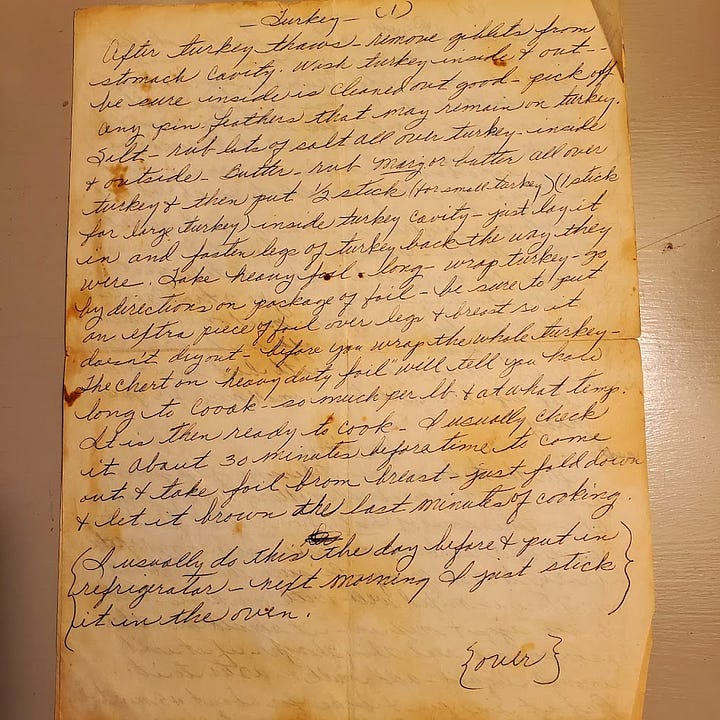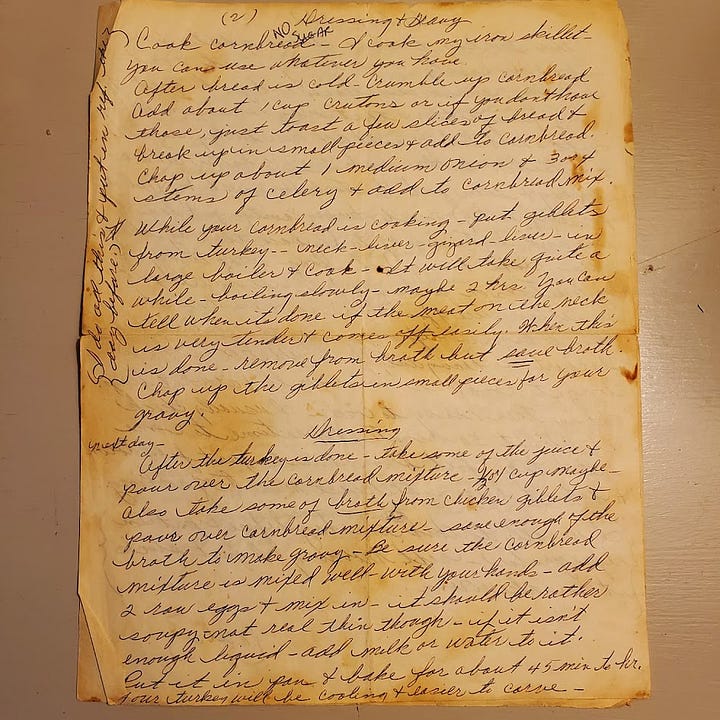Writing Lab: Unlock Your Authentic Narrative Voice
Give yourself permission to be authentic; that's where your narrative voice lies
I’ll get the best first line ever out of the way: “Where’s Papa going with that axe?”
Also the second best line: “Murderers! You can’t have ‘em all!” (heh-heh)
Tied with “I come from a family with a lot of dead people” (almost surpasses them all, of course, at least all of my oeuvre; it was inspired by loss, informed by grief, and elevated by determination).
And the third, etc:
“I write this sitting in the kitchen sink.”
“Marley was dead to begin with.”
“It took Susan a long time to die.”
Hmm… lots of death in these few first sentences off the top of my head. How about these two:
There are so many of them! Give me some examples, and can you include some non-fiction? I’ll start off the Lab Chat in a moment, with some more of these.
I promised a piece about narrative voice, so that’s the focus today, although never discount the job of a strong lead to set expectations and a narrative tone.
(Also never underestimate how much time it takes to get up to speed and in a rhythm with Storybelly posts, Debbie. Sigh. I am perpetually late for the Storybelly train that huffs and puffs on the publishing platform, waiting on me so it can do its job, giving my ops guru an apoplexy (okay, not an apoplexy but, at the least… pause). My ops guru says, at this point in the day (not to mention the week ahead, when he would have liked to have had it available), just post this tomorrow, but I promised it today, so today it is. We’ll get better at timing. Or, I will. )
Moving on!
I attended a Zoom session last weekend about creating an intimate narrative voice, hosted by writer Laurie Stone — her Substack is “Everything is Personal.” Some things she said that I wanted to share:
“Every sentence has a biography.” I love that… I’ve been thinking about it all week. Every sentence, Laurie said, “has values, and frame, and preferences.” Imagine. “The narrator of every sentence comes with these tendencies and they show, in how each character speaks, and in what they say.”
You are allowing a mind to be revealed to the reader, Laurie said, a mind that is enticing you to stay… “…and it’s always a performance.” Agree? Disagree?
I’m not sure “performance” would be the word I’d use. One participant asked about vulnerability, where is the vulnerability in that intimate narrative voice, and Laurie’s answer was that vulnerability served the needs of the writer, not the reader, and the reader is the one you want to seduce.
So come closer, Lab Coats. Let me seduce you.
Or let me start over. hahahaha.
I’m interested in the intersection of skill and art, or biography and vulnerability. I had an editor long ago tell me that she had manuscripts come across her desk every week that were technically sound but had no heart. She said, “I can teach someone all the skills they need to have in order to write something sound and technically solid, solid plot and all, but I can’t teach them that elusive ‘thing’ that elevates their language and their structure and their plot and makes it sing. Either they have it or they don’t. It can’t be taught.”
She was talking about voice, yes? Having a compelling narrative voice.
I started teaching writing by dissecting what this editor said, to see if I could offer up a way for writers to access that intimate, vulnerable place, that elusive ‘thing’ that helps them make their work sing. I began to teach what I believed:
All stories come from what we know, what we feel, and what we can imagine. I wrote it on the chalk board, the white board, on butcher paper, over and again, and then:
We made lists together, and we each circled the one thing that spoke to us on those lists that day, that one thing that tugged at our hearts, the one story only we could tell, and we each decided to write about that one thing, that day:
We practiced finding “one clear moment in time,” writing our focus sentence using that one clear moment, refining it, with that one clear thing as our guide, and then:
We drafted it out loud, in pairs, at table, and:
We listed what was working, we asked questions, and we revised — all orally, before we started writing — and it was thrilling! Thrilling to see how adults and young writers alike were able to find that elusive narrative voice and allow it to infuse their now-technically-adept stories.
It can be done, this accessing our authentic, narrative voice. We can do it together, right here. We’re already doing it. Anyone can do it. Everyone. And every one of us benefits from doing it. But I’m preaching to the choir. Y’all know that.
We give ourselves permission to mine our lives and turn them into stories, and, with practice, we find our true north in every story. It’s some of the most valuable and rewarding work we do.
I am living proof of that, and so are thousands of my writing students over the past 25 or so years. Many of them will never publish traditionally, and that’s not their goal. It’s also not the point.


The point is, they found their voices, and those voices are what lifts their understanding of their own lives and stories, and what helps them understand other people’s stories as well. Our voices make the world go ‘round. I want it to go ‘round in more health and compassion and love than this world seems to spin in right now, so it’s my belief that we need more and more of these stories told, written, illustrated, sung, and shared, in our authentic, unique narrative voices.
Your narrative voice has a foundation. That foundation is formed in the cradle, shapes itself continuously, and accompanies you to the grave — your voice never stops developing. It lives on, even when you go on to your next incarnation, or to dust, or to whatever happens to our essence when we are no longer walking on this plane. What stories are you leaving behind, and for whom?
You can access this narrative voice to tell your story… see last week’s Writer’s Chat, to see how some of us are already talking about our authentic selves/voices, without labeling it as such. We picked two books at random that have informed our reading and/or writing lives, and we discussed the how and why. It’s an exercise in opening your heart to your mind, whether you write in discovery or not. That chat remains open for more of same — please join us there.
Personal narrative is the backbone of all other writing (I am stubbornly opinionated about this). The better you know and dissect that narrative, the more you can seduce your reader with everything you write, and that includes every other genre you tackle, including fiction.
In your fiction, you will create authentic characters and settings and dialogue and relationships, because you are accessing your authentic self, in service of your story.
Ain’t much more exciting than that, for this writer. The rush it gives me in discovery, and the way that voice reveals itself because I have given permission to my authentic self to be vulnerable to it… in that way, vulnerability does serve the writer, as Laurie Stone said last weekend.
In the end, your vulnerability and willingness to reveal yourself on the page also serves the reader. I always say, when a book leaves my hands, it no longer belongs to me. It belongs to the reader.
Here’s to seduction. Here’s to you.
Discuss, Lab Coats. Discuss.
xoxoxoxo Debbie


Here is where I admit to not having read Fahrenheit 451 in so many years, I didn't remember that amazing first line. Thanks for the reminder. Bridge to Terabithia made me cry.
Two opening lines I like:
"It was a pleasure to burn" - Fahrenheit 451
"Ba-room, ba-room, ba-room, baripity, baripity, baripity, baripity—Good." - Bridge to Terabithia